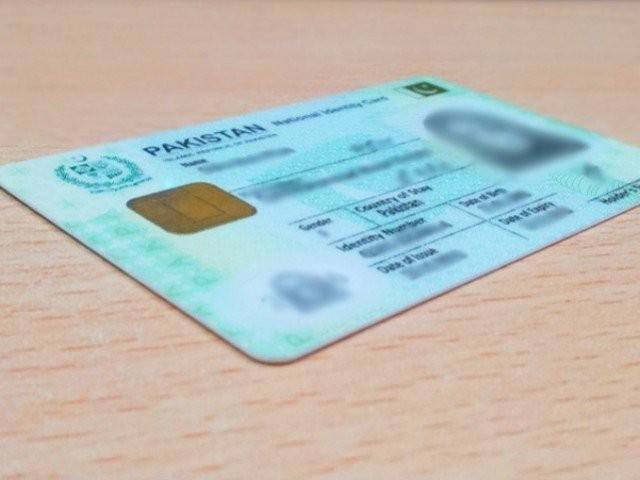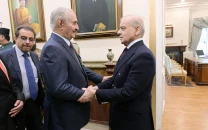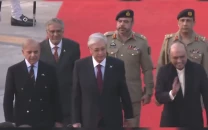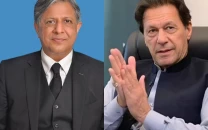Pakistan revokes forged CNICs of terror financiers
Faizullah Khan Noorzai, Haji Kherullah and Malik Noorzai were on UN, US watch-list

Faizullah Khan Noorzai, Haji Kherullah and Malik Noorzai were on UN, US watch-list. PHOTO: EXPRESS
Faizullah Khan Noorzai, Haji Kherullah and Malik Noorzai have been declared ‘confirmed aliens’ and their identity credentials blocked by the National Database & Registration Authority (NADRA) on the request of the intelligence agencies.
52 Afghans involved in terror finance nabbed
These terrorism financiers along with their 30 family members had obtained Pakistani identity cards through fake documentation showing them as residents of Killa Abdullah, a district in north-western Balochistan which borders Afghanistan.
Malik Noorzai, a brother of Faizullah, had obtained a CNIC under the fake name of Allah Ditta. Eleven family members of Faizullah, 14 of Malik and five of Kherullah also possess Pakistani identity cards.
Documents available with The Express Tribune suggest the action was taken under the decisions made during an inter-ministerial meeting of The 1988 (Taliban) Committee of the UN Security Council.
The special meeting was held after the death of Mullah Akhtar Mansoor, the Afghan Taliban chief who was killed in a drone strike in May 2016. He was also found in possession of a Pakistani passport and identity card.
In 2011, the United Nations and the US Treasury Department had designated these individuals as terror financiers “for providing financial, material or technological support, or acting for or on behalf of the most dangerous terrorist organisations (including the Taliban, Haqqani Network and al Qaeda]”.
Nisar orders re-verification of CNICs of all Pakistani citizens
Faizullah, according to the Treasury Department website, served as a prominent Taliban financier with whom senior Taliban leaders invested funds. “He has collected more than $100,000 for the Taliban from donors in the Gulf and in 2009 gave a portion of his own money to the Taliban,” it says.
He also financially supported a Taliban commander in Afghanistan’s Kandahar province and provided funds to assist with training Taliban and al Qaeda fighters who launched attacks against coalition and Afghan military forces.
Faizullah is accused of housing suicide bombers and moving them from Pakistan into Afghanistan and providing them anti-aircraft missiles and facilitating Taliban fighters’ movement around Helmand.
The individual also facilitated militant trainings and operations. As of mid-2009, he supplied weapons, ammunition, explosives and medical equipment to Taliban fighters from southern Afghanistan, the US treasury department claims.
Faizullah operated a seminary near the Pak-Afghan border, where tens of thousands of dollars were raised for the Taliban. The school grounds were used to provide training to Taliban fighters in making and using improvised explosive devices. As of late 2007, his madrassa was used to train al Qaeda fighters, who were sent on missions to Kandahar province.
In the case of Faizullah’s brother Malik, the US Treasury Department website states the “Pakistan-based businessman” has personally contributed tens of thousands of dollars and distributed hundreds of thousands of dollars to the Taliban since at least 2005.
Some of the funds were collected from donors in the Gulf region and Pakistan. He handled a “hawala” account in Pakistan and received tens of thousands of dollars from the Gulf states every few months to support Taliban activities.
As of 2009, Malik had served for 16 years as the chief caretaker of a madrassa near the Pak-Afghan border that was used by the Taliban to indoctrinate and train recruits.
NADRA to verify all CNICs within 6 months
He also owned a vehicle business in Afghanistan and imported vehicles from Dubai and Japan. He also imported auto parts and clothing from Dubai and Japan for his businesses, in which two Taliban commanders had invested.
In mid-2010, Malik and his brother secured the release of hundreds of cargo containers, reportedly worth millions of dollars, which Pakistani authorities had seized on suspicions that the recipients had links to terrorism.
When contacted for comments, NADRA’s spokesperson said the interior ministry was the appropriate forum to get the answer. The interior spokesperson, however, did not respond to several phone calls and also did not reply to a text message.
In 2011, Reuters quoted Malik as saying: “We have no connection with the Taliban, no connection with the Haqqanis. We have no need for such contacts, nor do we have the kind of money that can help run such groups.”
Published in The Express Tribune, September 17th, 2016.



















COMMENTS
Comments are moderated and generally will be posted if they are on-topic and not abusive.
For more information, please see our Comments FAQ